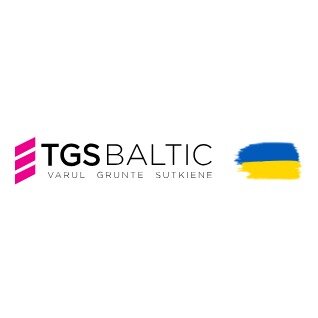Best Natural Resources Lawyers in Estonia
Share your needs with us, get contacted by law firms.
Free. Takes 2 min.
Or refine your search by selecting a city:
List of the best lawyers in Estonia
About Natural Resources Law in Estonia
Estonia is a country rich in natural resources, including oil shale, peat, limestone, forests, and fresh water. Natural resources law in Estonia governs the use, conservation, and management of these resources to ensure environmentally sustainable development. The legal framework involves regulations on mining, forestry, water management, and land use, reflecting Estonia's commitment to balancing economic growth with environmental preservation.
Why You May Need a Lawyer
Individuals and businesses may find themselves in situations requiring legal assistance regarding natural resources. Common scenarios include disputes over land use, compliance with environmental regulations, acquiring permits for resource extraction, or engaging in forestry activities. Legal advice is also crucial when navigating the complex administrative processes for mining rights, or when facing sanctions for alleged environmental infractions.
Local Laws Overview
Estonia's natural resources laws are encompassed within various legislative acts and regulations, such as the Environmental Code, the Mining Act, and the Water Act. Key aspects include the requirement of impact assessments for major projects, strict pollution control measures, and sustainable practices in forestry. The laws aim to protect biodiversity while allowing the responsible extraction and use of natural resources. Adhering to these legal frameworks is mandatory for all entities operating within the natural resources sector.
Frequently Asked Questions
What types of permits are needed for mining in Estonia?
Mineral extraction requires a mining permit issued by the Estonian Environmental Board, involving impact assessments and public consultations.
How is forest management regulated?
Forest management plans are mandatory, and activities must adhere to the rules set out in the Forest Act to ensure sustainability.
What should I do if my project impacts protected areas?
Special permits and environmental impact assessments are required to ensure minimal disruption to protected areas.
How can I challenge an environmental regulation decision?
You can appeal to the Environmental Board or court, ideally seeking legal counsel to guide the process.
What are the penalties for violating environmental laws?
Penalties can include fines, suspension of activities, or imprisonment, depending on the severity of the violation.
Are there incentives for using renewable resources?
Yes, Estonia offers various incentives and subsidies for projects that utilize renewable resources or aim to improve energy efficiency.
What is the role of public participation in natural resource management?
Public consultations are a crucial part of the permit process, allowing community input on environmental impact assessments.
Can foreign companies exploit natural resources in Estonia?
Yes, but they must comply with the same legal requirements as Estonian companies, including obtaining necessary permits.
How is water resource management handled?
The Water Act regulates water use, focusing on pollution control and sustainable practices to protect Estonia's water systems.
Who ensures compliance with environmental laws?
The Environmental Inspectorate monitors compliance, carrying out inspections and enforcing regulations.
Additional Resources
For further information, consider contacting the Estonian Environmental Board, the Ministry of the Environment, or the Estonian Chamber of Commerce. These organizations can provide guidance, support, and up-to-date information on regulatory changes.
Next Steps
If you need legal assistance, it is advisable to consult with a lawyer specializing in environmental or natural resources law. Begin by compiling all relevant documents and outlining your specific legal concerns. Contact local law firms with expertise in this area, and consider scheduling consultations to discuss your case and potential legal strategies. Keeping informed and prepared will ensure you make the best decisions regarding your natural resource-related legal matters.
Lawzana helps you find the best lawyers and law firms in Estonia through a curated and pre-screened list of qualified legal professionals. Our platform offers rankings and detailed profiles of attorneys and law firms, allowing you to compare based on practice areas, including Natural Resources, experience, and client feedback.
Each profile includes a description of the firm's areas of practice, client reviews, team members and partners, year of establishment, spoken languages, office locations, contact information, social media presence, and any published articles or resources. Most firms on our platform speak English and are experienced in both local and international legal matters.
Get a quote from top-rated law firms in Estonia — quickly, securely, and without unnecessary hassle.
Disclaimer:
The information provided on this page is for general informational purposes only and does not constitute legal advice. While we strive to ensure the accuracy and relevance of the content, legal information may change over time, and interpretations of the law can vary. You should always consult with a qualified legal professional for advice specific to your situation.
We disclaim all liability for actions taken or not taken based on the content of this page. If you believe any information is incorrect or outdated, please contact us, and we will review and update it where appropriate.
Browse natural resources law firms by city in Estonia
Refine your search by selecting a city.













